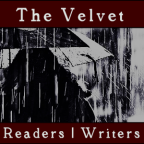I bring you #2 (heh) of a hopefully long-lived series: Kansas City Reading Coves. When I can, I like my reading retreats like my collection of chained basement mimes: varied and quiet. Today’s cove: Homer's Coffee House – 7126 West 80th Street, Overland Park, KS 66204 Homer’s keeps bringing me back, yet rationally, it should not. The black coffee only is okay; the coffee drinks are adequate at best (they have a powdery, grainy texture); the pastries taste like grandma's...if grandma worked at a Hostess factory; and most of the time the entire building has a gross cat box smell...sorry, cat LITTER smell...to it that can be tough to combat (if the place actually smelled like a cat box, I'd expect more coffee drinking male cats in the crowd). Homer's was originally established as as a ministry of KC Christian Business Men's Connection so consequently it caters to a Christian…
Category Archives Study (the world/the craft)
My living room couch is nice. My bed is comfy and relaxing. But the outside world is a too-neglected source of reading coves. A book can be influenced by its context. In the same way a vacation is as much about the promise of temporary joblessness as it is about the destination environment, reading is as much about the book as it is about the break from the normal domestic setting. With that, I bring you the first installment of a hopefully long-lived series: Kansas City Reading Coves. When I can, I like my reading retreats like my Mormons: welcoming and concernedly friendly. Today's cove: Javanaut - 1615 W 39th St, Kansas City, Missouri 64111 Right away, I have to say that I liked this place better when it was The Crave Cafe. The main difference between the former and the current establishment is the comparative sterility of the latter.…
Episode #004 of The Velvet Podcastjust went live a few hours ago. Me, Rob Parker, and Mark Jaskowski talk about: Most writers, whether hobbyists or professionals, would defend that writing is a compulsion. Yet despite this apparent need, writers find a lot a lot of ways to procrastinate (creating this podcast being one). In this episode, three Velvet members discuss why writing is so necessary, what keeps us from writing when we know we should, what keeps us writing once we start, and how helpful are writing exercises (Writers Digest would say “very;” their bottom line depends on it).(WARNING: We like tangents. Be weary) Please, give it a listen. Subscribe via Feedburner, Podcast Alley, iTunes.
 I’ve been accused of being a bit of a literary snob. Mostly by best-seller groupies who smell like trade paperbacks and poverty. Why don’t you go save a few dimes at a used blog store, and leave the shiny new posts to those of us with taste!
/UNDESERVED SENSE OF ENTITLEMENT
My justification for being a literary snob (literob?) always has been that if a book is best-selling and intellectually easily accessible, then it likely isn’t confronting dangerous (i.e., important) topics. I want to believe that fiction should be more than entertainment. For the most part, I still agree with this logic. But a few months ago, at the AWP Conference in Denver, CO, I came to a bit of a realization, with some help from author Tod Goldberg.
I realized that despite any drive to challenge the established format or structure of fiction, it is the story itself that keeps readers reading. I wanted to believe that a unique concept, or beautiful language, or inventive formatting alone could carry a book-length work. But no, it cannot. A book told from the perspective of a cancerous cell? Conceptually unique, but no. A book intimately describing that cancerous cell? Beautiful language, but no. A book giving dialog to every cancerous cell in a body, matching the text color to the cell color? Inventive formatting, but no. A book that imbues a cancerous cell with character traits similar to a human while putting that cell in a morally conflicted position? Sure.
My fault rested not entirely with the assumed intellectual ease of commercial (vs. literary) writing, but also with the ill-conception that plot-driven genre fiction is somehow weaker and easier to write than a high-Art piece of literary fiction. This opinion was birthed in college, where I first began to read and write. Had I read as a child, I may have understood the basal importance of plot long ago. But my literobbery was rooted in college, too late to let aesthetics matter. I was a head case (vs body case) from the beginning.
Now, five years post-graduation, a degree in-hand, and without a writing career that nullifies a day job, I’ve started to wonder about the role a university education plays in a writer’s life. Note: I wouldn’t trade my university experience for anything; I love being a literob. But I do wish that a stronger focus would have been placed on the writer’s career, and less on the writer’s life.
[pullshow]This is where Tod Goldberg comes in. During a panel titled Crime, Horror, Sci‐Fi, and Fantasy… Seriously, Goldberg, almost in passing, mentioned that [pullthis]he teaches his writing classes as though they were part of a trade program, meaning that he trains his students for actual jobs.[/pullthis] This goes against the traditional goal of a university writing program, which places almost no focus on job prospects, instead opting for a focus on intellectual ends (proselytizing [convincing students that their money is well-spent], pedagogy [teaching students to be teachers who in turn put their students in similar job-less positions], and how best to embed asides within parenthesis [I like to use brackets]).
If someone loves to weld, they go to a welding school to learn to be a professional welder. If someone loves to write, shouldn’t they go to a writing school to learn to be a professional writer? The key word being “professional,” meaning, to get paid doing so.
I’ve been accused of being a bit of a literary snob. Mostly by best-seller groupies who smell like trade paperbacks and poverty. Why don’t you go save a few dimes at a used blog store, and leave the shiny new posts to those of us with taste!
/UNDESERVED SENSE OF ENTITLEMENT
My justification for being a literary snob (literob?) always has been that if a book is best-selling and intellectually easily accessible, then it likely isn’t confronting dangerous (i.e., important) topics. I want to believe that fiction should be more than entertainment. For the most part, I still agree with this logic. But a few months ago, at the AWP Conference in Denver, CO, I came to a bit of a realization, with some help from author Tod Goldberg.
I realized that despite any drive to challenge the established format or structure of fiction, it is the story itself that keeps readers reading. I wanted to believe that a unique concept, or beautiful language, or inventive formatting alone could carry a book-length work. But no, it cannot. A book told from the perspective of a cancerous cell? Conceptually unique, but no. A book intimately describing that cancerous cell? Beautiful language, but no. A book giving dialog to every cancerous cell in a body, matching the text color to the cell color? Inventive formatting, but no. A book that imbues a cancerous cell with character traits similar to a human while putting that cell in a morally conflicted position? Sure.
My fault rested not entirely with the assumed intellectual ease of commercial (vs. literary) writing, but also with the ill-conception that plot-driven genre fiction is somehow weaker and easier to write than a high-Art piece of literary fiction. This opinion was birthed in college, where I first began to read and write. Had I read as a child, I may have understood the basal importance of plot long ago. But my literobbery was rooted in college, too late to let aesthetics matter. I was a head case (vs body case) from the beginning.
Now, five years post-graduation, a degree in-hand, and without a writing career that nullifies a day job, I’ve started to wonder about the role a university education plays in a writer’s life. Note: I wouldn’t trade my university experience for anything; I love being a literob. But I do wish that a stronger focus would have been placed on the writer’s career, and less on the writer’s life.
[pullshow]This is where Tod Goldberg comes in. During a panel titled Crime, Horror, Sci‐Fi, and Fantasy… Seriously, Goldberg, almost in passing, mentioned that [pullthis]he teaches his writing classes as though they were part of a trade program, meaning that he trains his students for actual jobs.[/pullthis] This goes against the traditional goal of a university writing program, which places almost no focus on job prospects, instead opting for a focus on intellectual ends (proselytizing [convincing students that their money is well-spent], pedagogy [teaching students to be teachers who in turn put their students in similar job-less positions], and how best to embed asides within parenthesis [I like to use brackets]).
If someone loves to weld, they go to a welding school to learn to be a professional welder. If someone loves to write, shouldn’t they go to a writing school to learn to be a professional writer? The key word being “professional,” meaning, to get paid doing so.
A very special Episode #003 of The Velvet Podcast just went live a few hours ago. I interview one of my very favorite authors, Brian Evenson about his upcoming AWP Conference panel, Crime, Horror, Sci‐Fi, and Fantasy… Seriously.Extract below: (Anthony Smith, Brian Evenson, Stephen Graham Jones, Tod Goldberg, Mark Smith, Seth Harwood) Six writers of genre fiction who also teach and/or have graduated from university creative writing programs discuss how they approach genre fiction as a serious literary pursuit rather than as a lesser form of fiction. In addition, they discuss attitudes towards genre fiction in the university and how those attitudes have changed over the years. I want to personally thank Mr. Brian Evenson for taking time out of his day to chat with me. He has made this fanboy quite happy. Be sure to visit his website for details about this amazing author. Please, give it a listen.…
Episode #002 of The Velvet Podcastjust went live a few hours ago. Me, Chris Deal, Bob Pastorella, and Chris Bodenstein talk about: Why the disparity between genre fiction and literary fiction? Why are these two modes so often thought of as mutually exclusive? Though genre fiction (the big ones: mystery, sci-fi, horror) are taught at the university level, there is a palatable disinterest among much of academia. In this episode, four The Velvet members discuss these questions and more. I look forward to the future of this podcast. Please, give it a listen. Subscribe via Feedburner, Podcast Alley, RSS, or iTunes.
I've been a member of The Velvet for a few years. During that time, I've come to respect the pool of talent over there not just for their writing chops, but for their reading tastes as well. They are my taste-makers. I am glad to now be able to share that camaraderie with you. Episode #001 of The Velvet Podcast just went live a few hours ago. Me, Gordon Highland, and Rob Parker talk about a few things writing, specifically regarding writing communities. I look forward to the future of this podcast. Please, give it a listen. Subscribe via Feedburner, Podcast Alley, RSS, or iTunes (coming soon). And don't worry, it won't be my lame voice on the Podcast for every episode.




